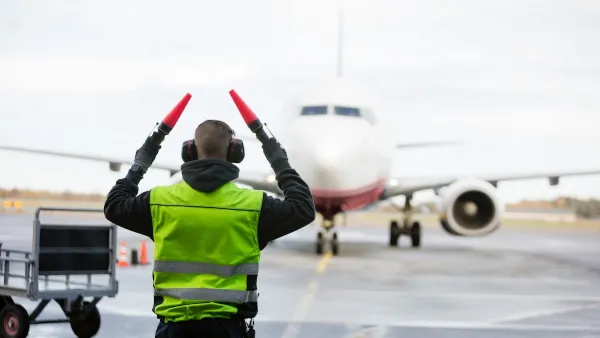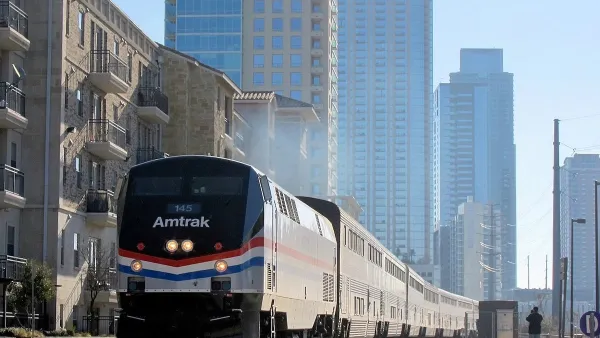This article from The Economist explains why America's transportation system is failing, and how the federal government's infrastructure funding mechanisms are contributing to the decline.
Comparing America's transportation menu to that of Western Europe, this article details some of the reasons behind various deficiencies in U.S. transportation.
"The Congressional Budget Office estimates that America needs to spend $20 billion more a year just to maintain its infrastructure at the present, inadequate, levels. Up to $80 billion a year in additional spending could be spent on projects which would show positive economic returns. Other reports go further. In 2005 Congress established the National Surface Transportation Policy and Revenue Study Commission. In 2008 the commission reckoned that America needed at least $255 billion per year in transport spending over the next half-century to keep the system in good repair and make the needed upgrades. Current spending falls 60% short of that amount.
If Washington is spending less than it should, falling tax revenues are partly to blame. Revenue from taxes on petrol and diesel flow into trust funds that are the primary source of federal money for roads and mass transit. That flow has diminished to a drip. America's petrol tax is low by international standards, and has not gone up since 1993 (see chart 3). While the real value of the tax has eroded, the cost of building and maintaining infrastructure has gone up. As a result, the highway trust fund no longer supports even current spending. Congress has repeatedly been forced to top up the trust fund, with $30 billion since 2008."
FULL STORY: Life in the slow lane

Maui's Vacation Rental Debate Turns Ugly
Verbal attacks, misinformation campaigns and fistfights plague a high-stakes debate to convert thousands of vacation rentals into long-term housing.

Planetizen Federal Action Tracker
A weekly monitor of how Trump’s orders and actions are impacting planners and planning in America.

In Urban Planning, AI Prompting Could be the New Design Thinking
Creativity has long been key to great urban design. What if we see AI as our new creative partner?

King County Supportive Housing Program Offers Hope for Unhoused Residents
The county is taking a ‘Housing First’ approach that prioritizes getting people into housing, then offering wraparound supportive services.

Researchers Use AI to Get Clearer Picture of US Housing
Analysts are using artificial intelligence to supercharge their research by allowing them to comb through data faster. Though these AI tools can be error prone, they save time and housing researchers are optimistic about the future.

Making Shared Micromobility More Inclusive
Cities and shared mobility system operators can do more to include people with disabilities in planning and operations, per a new report.
Urban Design for Planners 1: Software Tools
This six-course series explores essential urban design concepts using open source software and equips planners with the tools they need to participate fully in the urban design process.
Planning for Universal Design
Learn the tools for implementing Universal Design in planning regulations.
planning NEXT
Appalachian Highlands Housing Partners
Mpact (founded as Rail~Volution)
City of Camden Redevelopment Agency
City of Astoria
City of Portland
City of Laramie





























